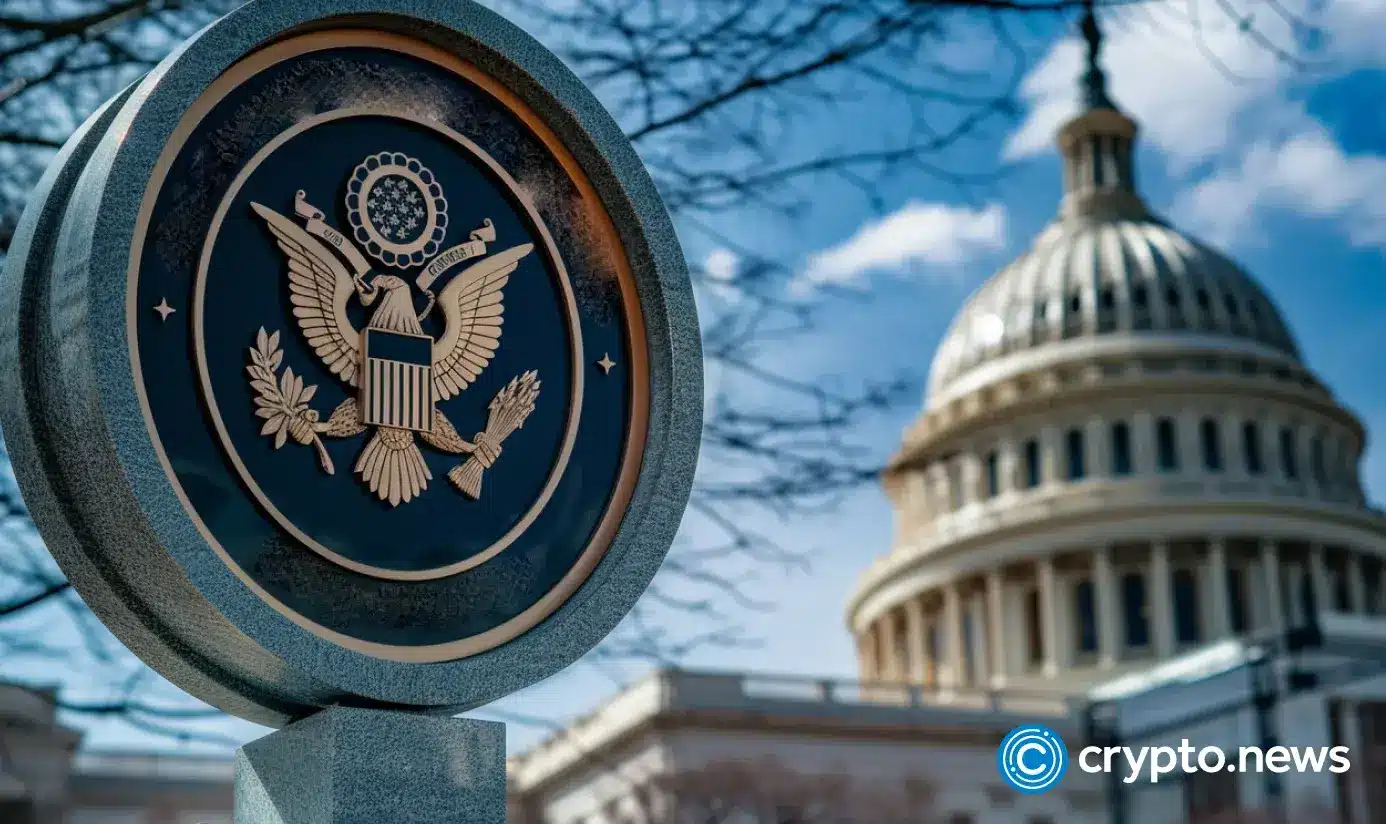crime
Mango Markets settles with SEC, agrees to destroy MNGO tokens
Published
3 months agoon
By
admin

The SEC has charged Mango DAO and Blockworks Foundation with the unregistered sale of ‘MNGO’ tokens and unregistered broker activity related to the Mango Markets platform.
According to the SEC, Mango DAO, a decentralized autonomous organization, and Blockworks Foundation, a Panama-based entity, raised more than $70 million from the sale of MNGO tokens starting in August 2021. The SEC alleged that these entities bypassed protections meant to safeguard investors by avoiding federal registration rules.
All charged parties settled the charges, agreeing to destroy their tokens and pay a fine.
The MNGO tokens served as governance tokens, allowing holders to have a say in how Mango Markets operates. Mango Markets is a crypto trading platform where users can trade digital assets.
Mango Markets recently allocated $250,000 in USD Coin (USDC) to address U.S. regulatory scrutiny, following a series of regulatory challenges, including a 2022 Avraham Eisenberg hack that resulted in $116 million in losses.
Crypto lawyer Bill Hughes suggested on X that Eisenberg’s Mango Market hack and subsequent conviction threw more scrutiny on the entire project, eventually culminating in settled SEC charges and a monetary fine.
Mango token ICO didn’t require proof you weren’t a US person, so US persons participated. US persons also helped create Mango Markets and got a token allocation as compensation for their work. The Mango DAO website was accessible by US persons. Mango Markets was accessed by US…
— Bill Hughes : wchughes.eth 🦊 (@BillHughesDC) September 27, 2024
Unregistered brokers
The SEC also charged Blockworks Foundation and Mango Labs LLC with acting as unregistered brokers, alleging that they recruited users to trade on Mango Markets and provided advice and valuations on investment opportunities.
According to the SEC, this activity meant that the entities were operating as brokers without the necessary regulatory registration.
Similarly, on Sept. 18, the SEC charged Rari Capital and its co-founders for acting as unregistered brokers. They allegedly conducted unregistered securities offerings through investment products holding over $1 billion in crypto assets.
For context, the SEC requires entities offering securities, such as stocks or tokens with investment features, to register with them to ensure investor protections. This includes adhering to strict disclosure rules and other regulations.
Mango Markets destroying tokens
Mango DAO, Blockworks Foundation, and Mango Labs agreed to settle the SEC charges without admitting or denying the allegations.
All charged parties agreed to pay nearly $700,000 in penalties, destroy their MNGO tokens, and request that these tokens be removed from trading platforms. They also agreed not to solicit trading of MNGO tokens in the future.
Source link
You may like


Experts say these 3 altcoins will rally 3,000% soon, and XRP isn’t one of them


Robert Kiyosaki Hints At Economic Depression Ahead, What It Means For BTC?


BNB Steadies Above Support: Will Bullish Momentum Return?


Metaplanet makes largest Bitcoin bet, acquires nearly 620 BTC


Tron’s Justin Sun Offloads 50% ETH Holdings, Ethereum Price Crash Imminent?


Investors bet on this $0.0013 token destined to leave Cardano and Shiba Inu behind
crime
Crypto cops record $8.2b in financial remedies for investors: SEC
Published
4 weeks agoon
November 24, 2024By
admin

For all the complaints levied against the crypto-strict U.S. Securities and Exchange Commission (SEC), the agency successfully obtained orders for $8.2 billion in financial remedies for 2024.
This is despite a 26% decrease in total enforcement actions.
The successful prosecution of Terraform Labs helped the agency achieve this milestone. Once a jury verdict found Terraform Labs and founder Do Kwon liable for fraud, defendants agreed to a final judgment ordering them to pay more than $4.5 billion in penalties — the highest amount ever obtained by the SEC following a trial.
It accounted for more than half of the total monetary judgments, according to the details from the press release.
SEC’s 583 enforcement actions
The SEC’s enforcement efforts in 2024 showed significant shifts across multiple categories, with 583 total enforcement actions. This includes 431 stand-alone actions representing a 14% decrease, 93 follow-on administrative proceedings showing a 43% decrease, and 59 delinquent filing actions marking a 51% decline.
Despite the reduced number of cases, the financial impact reached these levels, combining $6.1 billion in disgorgement and prejudgment interest with $2.1 billion in civil penalties.
In the cryptocurrency sector, the SEC pursued several major cases, including charges against Silvergate Capital for misleading BSA/AML compliance disclosures and action against Barnbridge DAO for unregistered securities offerings.
The agency also tackled the HyperFund pyramid scheme involving $1.7 billion and the NovaTech fraud case affecting 200,000 investors. Notable first-time enforcement actions targeted relationship investment scams involving NanoBit and CoinW6 platforms.
The SEC’s Division of Enforcement won all five federal district court cases, including its crypto-related trial against Terraform Labs. This success extended to investor protection measures, with 124 individuals barred from serving as officers and directors of public companies.
SEC Chair Gary Gensler emphasized the Division’s role as a “steadfast cop on the beat,” while Acting Director Sanjay Wadhwa noted increased market participant cooperation and self-reporting.
The report somewhat justifies Gensler’s role as the top crypto enforcer. The outgoing SEC chair, set to resign on Jan. 20, faced harsh criticism from crypto enthusiasts and retail traders throughout his tenure for his regulatory approach.
And yet, the SEC distributed $345 million to harmed investors and processed a record 45,130 tips, complaints, and referrals, including over 24,000 whistleblower tips, resulting in $255 million in whistleblower awards.
The agency’s success in returning funds to investors has been substantial, with more than $2.7 billion distributed since fiscal year 2021.
But most of the actual scams were cyrpto 😬
— sean combs (@William48759211) November 22, 2024
Source link
Canada
Crypto influencer Kevin Mirshahi found dead in Canadian park
Published
1 month agoon
November 14, 2024By
admin

The body of Kevin Mirshahi, a 25-year-old cryptocurrency influencer who had been missing since June, was found dead.
Mirshahi’s body was discovered in Montreal’s Île-de-la-Visitation Park, as confirmed by the Sûreté du Québec, according to the Montreal Gazette.
A passerby came across his decomposing body, prompting an investigation that identified him through an autopsy.
The case, which marks Montreal’s 32nd homicide of 2024, has highlighted a concerning pattern of violence within the crypto community, raising questions about the safety of high-profile figures in the sector.
Timeline of Mirshahi’s disappearance and death
Mirshahi’s disappearance occurred on June 21. Early that morning, he and three others were allegedly abducted from a condo building in Old Montreal.
Montreal police were alerted after receiving a 911 call about a disturbance at a residence near de la Commune and St-Hubert Streets, according to The Gazette.
CRYPTO INFLUENCER FOUND DEAD
Kevin Mirshahi, a Montreal crypto influencer, was discovered in Île-de-la-Visitation park months after a June abduction.
A 32-year-old woman’s facing murder charges, but no ties to his crypto firm “Crypto Paradise Island” confirmed.
Mirshahi’s… pic.twitter.com/tgVq43uwN9
— Mario Nawfal’s Roundtable (@RoundtableSpace) November 14, 2024
While the three other abductees were quickly located, Mirshahi remained missing, prompting police to escalate the investigation to the SQ.
During the initial investigation, police identified Joanie Lepage, a 32-year-old woman from Les Cèdres, Quebec, as a suspect, per The Gazette.
In August, she was arrested and charged with first-degree murder and involvement in Mirshahi’s abduction. Authorities allege that Lepage played a role in concealing Mirshahi’s death, though investigations are ongoing to determine if other suspects may have been involved.
Mirshahi’s background in crypto
Mirshahi was a prominent figure in Montreal’s cryptocurrency scene, primarily due to his management of a private investment firm called “Crypto Paradise Island,” per The Gazette.
His activities in the crypto space attracted public and regulatory scrutiny, particularly from Quebec’s investment authority, the Autorité des Marchés Financiers.
The AMF placed restrictions on Mirshahi in 2021, barring him and two associates from acting as investment advisers or conducting securities transactions. Two weeks after his disappearance, this ban was reinforced in July 2024, limiting his online activities and requiring him to cease promoting related content on social media.
This case isn’t the first crypto-related crime that happened in Canada this month. On Nov. 6, Toronto police investigated the kidnapping of WonderFi CEO Dean Skurka, who was abducted in downtown Toronto and released after a $1 million ransom was paid electronically.
Source link
crime
Tether helps Canadian police recover stolen crypto
Published
1 month agoon
November 9, 2024By
admin

Tether recently assisted the Ontario Provincial Police in recovering $10,000 CAD worth of stolen cryptocurrency.
This recovery was achieved through Tether’s collaboration with the OPP’s Cyber Investigations Team, showcasing the company’s commitment to supporting law enforcement in combating cybercrime.
Tether responded to the OPP’s request by freezing the Tether (USDT) involved in the theft, which allowed the digital assets to be returned to their rightful owner.
Detective Staff Sergeant Addison Hunter of the OPP acknowledged Tether’s voluntary cooperation as essential in recovering the stolen funds, according to Tether’s press release.
Tether has established itself as a partner to law enforcement in tackling cybercrime, claiming it has aided over 195 law enforcement agencies across 48 countries.
Tether also announced on November 8 that it had completed its first funding transaction in a Middle East crude oil investment, expanding the company’s ventures beyond just crypto.
Tether in the hot seat?
Recently, on the United States legal front, Tether denied reports that the company was under investigation for anti-money-laundering and sanctions law violations.
Manhattan prosecutors were reportedly investigating whether Tether’s cryptocurrency had been involved in illegal activities. The U.S. Treasury Department was also said to be considering sanctions on Tether, which could potentially limit American business dealings with the company.
Ceo Paolo Ardoino rejected these claims on X, asserting there was no indication of an investigation and calling the reports “old noise.”
Source link

Experts say these 3 altcoins will rally 3,000% soon, and XRP isn’t one of them

Robert Kiyosaki Hints At Economic Depression Ahead, What It Means For BTC?

BNB Steadies Above Support: Will Bullish Momentum Return?

Metaplanet makes largest Bitcoin bet, acquires nearly 620 BTC

Tron’s Justin Sun Offloads 50% ETH Holdings, Ethereum Price Crash Imminent?

Investors bet on this $0.0013 token destined to leave Cardano and Shiba Inu behind

End of Altcoin Season? Glassnode Co-Founders Warn Alts in Danger of Lagging Behind After Last Week’s Correction

Can Pi Network Price Triple Before 2024 Ends?

XRP’s $5, $10 goals are trending, but this altcoin with 7,400% potential takes the spotlight

CryptoQuant Hails Binance Reserve Amid High Leverage Trading

Trump Picks Bo Hines to Lead Presidential Crypto Council

The introduction of Hydra could see Cardano surpass Ethereum with 100,000 TPS

Top 4 Altcoins to Hold Before 2025 Alt Season

DeFi Protocol Usual’s Surge Catapults Hashnote’s Tokenized Treasury Over BlackRock’s BUIDL

DOGE & SHIB holders embrace Lightchain AI for its growth and unique sports-crypto vision
182267361726451435

Why Did Trump Change His Mind on Bitcoin?

Top Crypto News Headlines of The Week

New U.S. president must bring clarity to crypto regulation, analyst says

Will XRP Price Defend $0.5 Support If SEC Decides to Appeal?

Bitcoin Open-Source Development Takes The Stage In Nashville

Ethereum, Solana touch key levels as Bitcoin spikes

Bitcoin 20% Surge In 3 Weeks Teases Record-Breaking Potential

Ethereum Crash A Buying Opportunity? This Whale Thinks So

Shiba Inu Price Slips 4% as 3500% Burn Rate Surge Fails to Halt Correction

Washington financial watchdog warns of scam involving fake crypto ‘professors’

‘Hamster Kombat’ Airdrop Delayed as Pre-Market Trading for Telegram Game Expands

Citigroup Executive Steps Down To Explore Crypto
Mostbet Güvenilir Mi – Casino Bonus 2024

NoOnes Bitcoin Philosophy: Everyone Eats
Trending

 3 months ago
3 months ago182267361726451435

 Donald Trump5 months ago
Donald Trump5 months agoWhy Did Trump Change His Mind on Bitcoin?

 24/7 Cryptocurrency News4 months ago
24/7 Cryptocurrency News4 months agoTop Crypto News Headlines of The Week

 News4 months ago
News4 months agoNew U.S. president must bring clarity to crypto regulation, analyst says

 Price analysis4 months ago
Price analysis4 months agoWill XRP Price Defend $0.5 Support If SEC Decides to Appeal?

 Opinion5 months ago
Opinion5 months agoBitcoin Open-Source Development Takes The Stage In Nashville

 Bitcoin5 months ago
Bitcoin5 months agoEthereum, Solana touch key levels as Bitcoin spikes

 Bitcoin5 months ago
Bitcoin5 months agoBitcoin 20% Surge In 3 Weeks Teases Record-Breaking Potential


